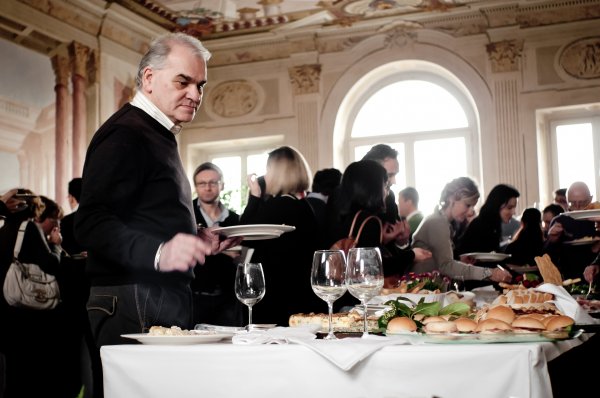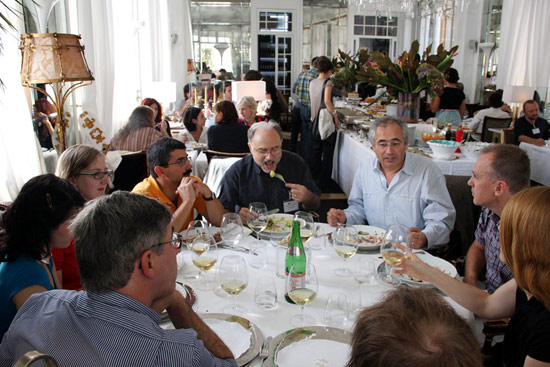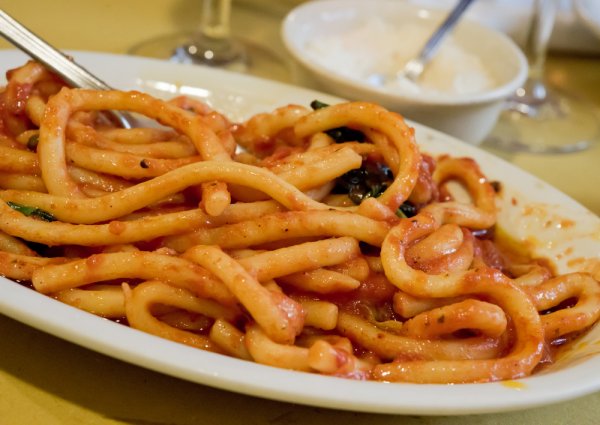Business Culture: Business Entertaining
Activities
Most business entertainment takes place at restaurants during lunch or dinner; business breakfasts are fairly rare in Italy, as Italians do not tend to linger over breakfast. Going out for drinks is also rare; Italians prefer to combine eating and drinking, so few events will involve one without the other.
Dinner is usually served late: around 10p.m. in Naples, 9p.m. in Rome, and no earlier than 8p.m. in northern Italian cities such as Genoa.
Most business dinners occur at restaurants, and involve a small and exclusive group of people. If you are hosting a dinner, you may wish to consult with your counterparts to decide on the guest list, since you may not be aware of all the internal politics.
Italian business culture values hospitality very highly, and you may find yourself receiving frequent invitations to lunch or dinner. It's difficult to refuse an invitation without causing offense; be sure to leave some flexible time in your schedule for business lunches and dinners. Being invited to someone's home is a rare honor, and a very positive sign for a business relationship, and you should never refuse these invitations.
Lunch is usually the main meal of the day, and is often served after 12:30p.m. in Northern Italy. In Southern Italy, it's served considerably later, around 2p.m. or 3p.m.; Central Italy usually dines between 1p.m. and 2p.m. Business lunches can be quite long, although they can be shorter in the northern cities. Many business discussions and key meetings occur over the noon meal.
Italians take coffee breaks frequently, and use these breaks to make small talk and strengthen relationships. It's a good idea to use these opportunities to socialize, even if you're not a big coffee drinker.
Etiquette
In restaurants, the person who issues the invitation is generally the one who pays. If you have been invited out, it is polite to offer to pay—but your host is likely to refuse. You should insist on paying for the meal only when you were the one who issued the invitation.
For businesswomen, it is particularly important to make arrangements ahead of time to pay the bill. Italian businessmen may refuse to let women pay, regardless of who issued the invitation.
Usually, the tip is included in the bill—it will be written on the receipt as coperto, and will usually not be more than 5 percent. If you are particularly happy with the service, you may leave an additional 5 percent on the table, but it is not required.
Smoking is banned in all Italian public places, including bars and restaurants. This ban is enforced very strictly, and it's never a good idea to light up in a public building. If you must smoke, you will usually need to go out to a patio or sidewalk.
When invited to someone's home for dinner, it's considered polite to bring a gift. Bear in mind that Italians are quite generous when it comes to giving gifts, and an overly practical gift or one that seems cheap will not be well received. Your gift does not necessarily have to be ostentatiously expensive, but the brand name should be well known. High-quality wines and liquors are usually appreciated, as are tasteful gifts from your home country. All gifts should be nicely wrapped; avoid black and gold wrappings, as these are funereal colors.
Guests typically arrive fifteen to thirty minutes after the stated time to dinner parties.
Alcohol and food often go hand-in-hand in Italy. Most dinner parties start with an aperitif such as prosecco or Campari, and end with a drink such as grappa, a brandy made from grape stems and skins. In between, both wine and water will be served. The Italians drink wine slowly, and consider it impolite to drink a large amount at once. Getting drunk, or even tipsy, is a breach of etiquette.
At more formal dinner parties, seating may be planned. The guest of honor is usually seated to the right of the host, and couples may be broken up to encourage conversation and mingling. It's best to wait to be seated.
The Italians dine with a Continental style, meaning the knife and fork are not switched in the hands between cutting and eating. Most foods, including fruit, are eaten with knife and fork. If there is more than one set of cutlery at the table, work your way from the outside inward for each course.
Italians take their food very seriously, and you may find yourself in intense conversation about food. Always be sure to offer lavish praise to your host's food; reserved praise may be taken as implicit criticism and may cause offense. Avoid adding salt, pepper, or other seasonings to your food; this suggests that you think the dish is bland, and can be taken as an insult.
Salads and pastas are a large part of Italian dining in most areas of the country. To eat salad, fold the lettuce into a small package before picking it up on your fork; avoid cutting it. Use the side of your bowl or plate to twirl pasta around your fork; avoid leaving long, dangling ends, as it's considered impolite to slurp them up as you eat.
Bread is often served at meals; it is traditionally placed to the side of the plate, on the table, and not on the plate itself. It's considered acceptable to deposit sauce or gravy onto a piece of bread using a fork, but impolite to use your bread to mop it up directly.
Article written for World Trade Press by Jennifer Williamson.
Copyright © 1993—2025 World Trade Press. All rights reserved.

 Italy
Italy 



